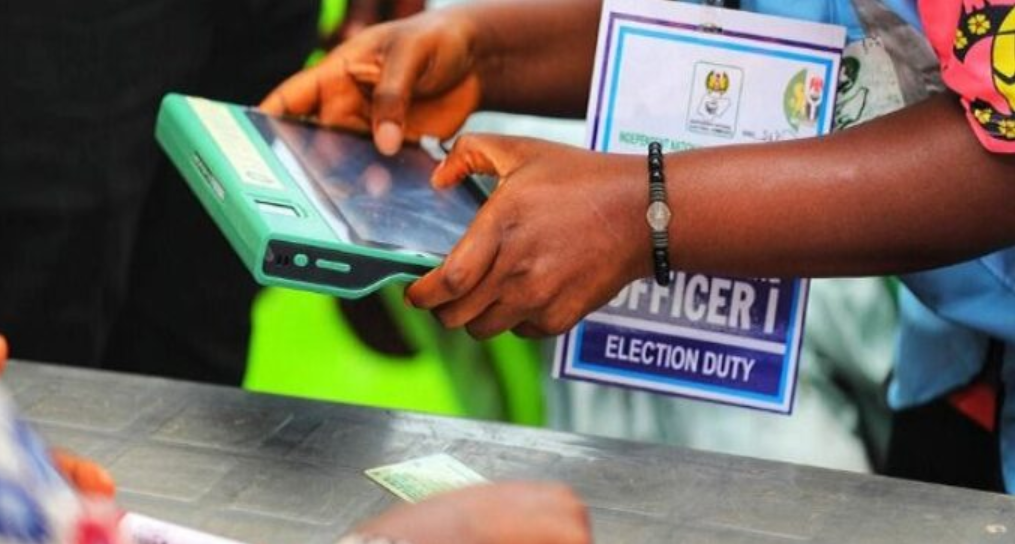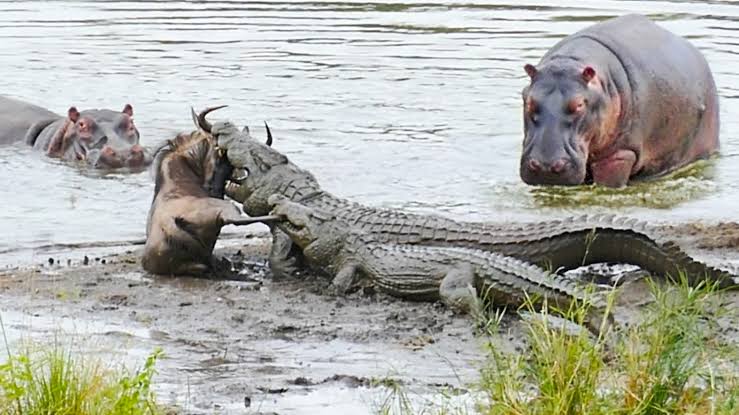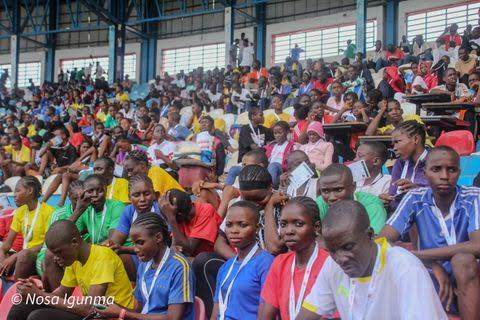Nasarawa, Ogun challenge NFIU cash withdrawal limit at S’Court
NASA Space Technology
Nasarawa and Ogun states have said though they were parties in the suit challenging the legality of the Economic and Financial Crimes Commission, they were contesting the Nigerian Financial Intelligence Unit cash withdrawal limit guidelines.
Out of the 19 states that dragged the Federal Government to the Supreme Court, challenging the constitutionality of the laws that established the EFCC, the two states said it was concerned over the cash withdrawal limit guidelines by the NFIU.
The Supreme Court fixed October 22 to hear the suit.
The duo in separate suits, sued the Attorney General of the Federation, demanding that NFIUs January 3, 2023 guidelines and Advisory, which limits the amount that can be withdrawn by states and their local governments, be set aside by the apex court.
In the guidelines, all 36 states of the federation were directed to desist from making cash withdrawals exceeding N5m or N10m, as the case may be.
The states also warned the local government councils in Nigeria, including the Federal Capital Territory Administration, to avoid cash withdrawals exceeding N5m or N10m from their accounts, as applicable.
The NFIU specifically threatened that any state or local government that defaulted on the order would face legal consequences, including a jail term of up to three years.
The agency stipulated that cash withdrawal of above N5m by individuals or N10m by corporate body from public accounts belonging to the state government and/or local government councils amounts to contravention of the Money Laundering Act and same is punishable under said Act.
One of the plaintiffs in the suit, the Attorney General of Nasarawa State, Magaji Labaran, contested the provision of the guidelines in a separate suit.
Labaran, in the suit, based his argument on the grounds that by the provisions of the constitution of the Federal Republic of Nigeria 1999 as amended, Nasarawa State government or the 13 local government councils have exclusive powers in the control, management and administration of funds belonging to the state or the councils.
An affidavit deposed to by the Litigation Secretary of the plaintiff, Danladi Ambi, stated that the defendant in the suit was the Attorney General of the Federation, under whose control and supervision the EFCC and the Independent Corrupt Practices and Other Related Offences Commission operate.
That the defendant is saddled with the responsibility to institute and defend legal actions for and on behalf of the Federal Government and all or any of her agencies.
That the NFIU and the Central Bank of Nigeria are agencies of the Federal Government of Nigeria, whose Heads (NFIU and CBN) are appointed by the President, subject to confirmation by the Senate of the Federal Republic of Nigeria.
That all actions of the NFIU and CBN are done for and on behalf of the Federal Government of Nigeria, the affidavit stated.
The deponent further added that Nasarawa State has 13 local government areas created by the Constitution of the Federal Republic of Nigeria 1999 ( as amended) and that based on the purported guidelines and advisory of the NFIU, the state and local government authorities were restrained from withdrawing their respective funds to a certain threshold unless a waiver was granted by the Presidency on a case-by-case basis.
The plaintiff argued that if the guidelines and advisory were enforced or implemented in the states of the federation, it would hamper the Nasarawa State government from performing its constitutional duties in terms of provision of both human and capital development for the citizenry.
It said the implementation would hurt the execution of the yearly budget as well as the running of the local governments.
Labaran argued that the EFCC Act was made pursuant to Article 15 of the United Nations Convention against Corruption, which requires ratification of state houses of Assembly in Nigeria before same becomes valid.
That when the National Assembly passed the EFCC Act, the National Assembly did not ask for the concurrence or ratification of the state Houses of Assembly, including Nasarawa State House of Assembly as required by the constitution of the Federal Republic of Nigeria 1999 )(as amended).
That the said EFCC Act, ICPC Act, NFIU Act, Proceeds of Crime (Recovery Management) Act, though passed without the concurrence or ratification of state Houses of Assembly or Nasarawa State House of Assembly, have consistently been enforced to the knowledge of the defendant (AGF) against the officials and associates of the government of Nasarawa State.
The plaintiff prayed the court to grant all reliefs requested in the suit if the questions asked to be determined were answered in the negative.
Among others, the plaintiff sought the following reliefs: A declaration that the Attorney-General of the Federation or any agency of the Federal Government of Nigeria howsoever called lacks requisite powers to prosecute any person in Nasarawa State with respect to offences arising from or touching on the administration and management of funds belonging to Nasarawa State government or any local government council of the state.
An order of this honourable court setting aside any directive, guideline, advisory or any instrument howsoever called, issued for and or by the Federal Government of Nigeria through the Nigerian Financial Intelligence Unit (NFIU) or any agency of the Federal Government of Nigeria in respect of the administration and management of funds belonging to Nasarawa State government and/or any local government council of the state.
An order of perpetual injunction restraining the defendant or EFCC, the NFIU, ICPC or any agency of the Federal Government of Nigeria from further issuing any directive, guideline, advisory or any instrument howsoever called or investigating, requisitioning documents, inviting and or arresting or prosecuting anyone in Nasarawa State concerning offences arising from or touching on the administration and management of funds belonging to Nasarawa State government or any local government council of the state.
The Ogun State government, in a statement on Tuesday by the Special Adviser to the Governor on Media and Strategy, Kayode Akinmade, noted that the constitutionality of the EFCC and ICPC had since been determined by the Supreme Court, and Ogun State considered discussions on the issue closed.
He added that the Ogun State had no factual reason or recent development to reopen the question of the EFCCs constitutionality.
He further added that as a federating unit with law enforcement agencies of its own, it had no desire to undermine the Federal Governments law and order objectives.
Providing clarification on the actual case filed by Ogun State in court, the statement read: The case Ogun State has filed (SC/CV/912/2024) and the case that several states are party to (SC/CV/178/2023) litigate a very narrow issue that does not attack the constitutionality of the EFCC.
Nigerians recall the obnoxious naira redesign policy, which was invalidated by the Supreme Court after Ogun State and other states successfully challenged the policy.
A lesser-known fact is that around that time in January 2023, purporting to act under the Anti-Money Laundering Act, Proceeds of Crime Act, and its enabling statute, the Nigerian Financial Intelligence Unit (NFIU) released a Guidelines document and an Advisory which, among other things, placed limits on cash withdrawals by State and Local Governments.
Ogun State disagrees with these limits because they do not align with our view of the law and cause significant governance disruptions.
As such, the suit is targeted at invalidating the NFIU Guidelines and Advisory, insofar as they interfere with the economic and governance interests of Ogun State and its Local Governments.
Especially now that the Supreme Court has guaranteed the Local Governments access to their funds, intrusive subsidiary legislation by unelected bureaucrats in the NFIU ought not to stand in the way of the justified free use of public funds.












